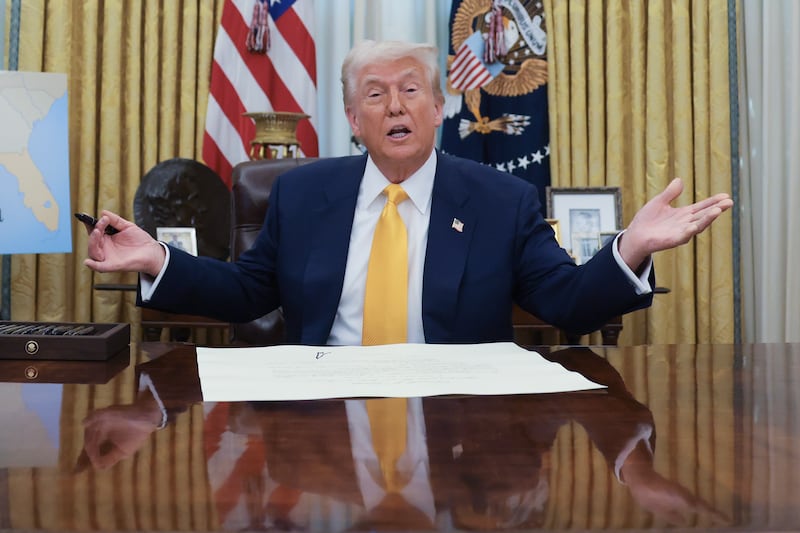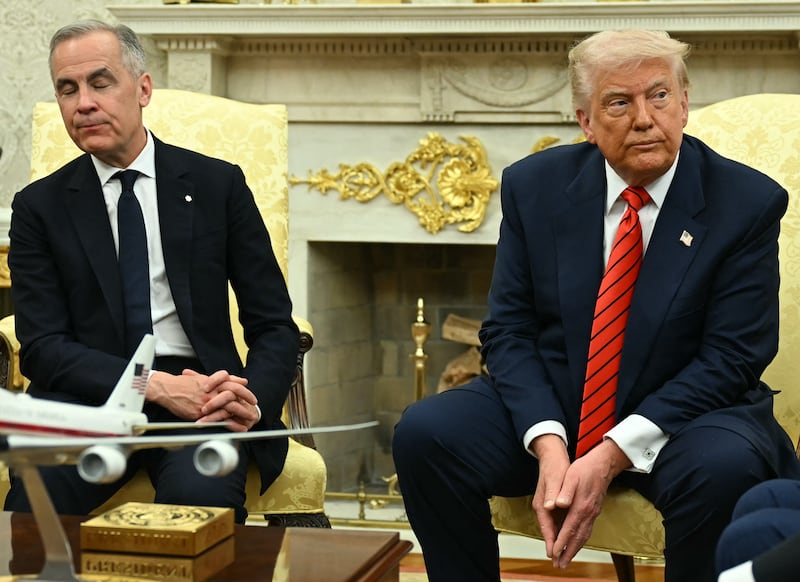President Donald Trump has singled out Canada for punishment in his latest round of tariff announcements, with a key component allowing a delay for other countries.
Trump signed an executive order Thursday forcing new import taxes on dozens of countries under a new trade plan. As part of the latest tariff rollout, over 70 other countries will have until Aug. 7 until their new levies kick in.
The same could not be said about Canada, however. Trump signed a separate executive order Thursday that included a new tariff rate—up from 25 percent to 35 percent—and an earlier deadline: 12:01 a.m. Eastern Daylight Time on Aug. 1.
The order stated Canada—America’s second-biggest trading partner—had failed to address “illegal migration” and showed a “lack of cooperation” in stopping fentanyl and other illicit drugs flowing into the U.S. as well as threatening to retaliate with its own tariffs.

Trump had announced modified tariff rates in April, but put implementing them on hold following market turmoil.
Under the newly signed guidelines, Trump raised the baseline tariff rate from 10 percent to 15 percent for all countries with which the United States has a trade deficit. The 10 percent rate will remain for countries with a trade surplus.
The highest tariff is on goods from Syria, at 41 percent. Switzerland’s rate, not far behind, increased from 31 percent to 39 percent.
China, currently in talks with the administration, keeps its baseline tariff at 10 percent, as agreed upon in May. Although the average effective tariff rate on imports to the U.S. sits at its highest level in nearly a century, some countries saw their rates decrease following trade agreements.

Imports from the European Union, Japan, and South Korea will be taxed at 15 percent, all having struck deals with Trump in the last week. The levies will be paid by importers in the United States and would typically be passed on to American consumers.
The executive order effectively pushes the tariff deadline back by a week—despite Trump declaring Wednesday on Truth Social, “THE AUGUST FIRST DEADLINE IS THE AUGUST FIRST DEADLINE — IT STANDS STRONG, AND WILL NOT BE EXTENDED. A BIG DAY FOR AMERICA!!!”
The delay is reportedly so Customs and Border Protection can make necessary changes, according to CNN and The Washington Post, but will also allow trading partners more time to negotiate.
The increased tariffs for Canada, which come despite the country scrapping its digital services tax as a concession to Trump, apply only to goods not covered by the U.S.-Mexico-Canada trade agreement, so 85 percent of Canadian imports remain duty-free. Canada is the top buyer of U.S. exports, according to CNN. Trump had earlier agreed to a 90-day extension with Mexico to cut a trade deal, crediting it for negotiating more cooperatively than Canada.
“We have a good relationship with Canada; we work well with their officials and government,” a senior administration official told reporters, according to CNN. “But they haven’t shown the same level of constructiveness that we’ve seen from the Mexican side.”
Canadian Prime Minister Mark Carney said he was “disappointed” in a statement after midnight Thursday, adding Canada accounted for 1 percent of U.S. fentanyl imports.
“While we will continue to negotiate with the United States on our trading relationship, the Canadian government is laser-focused on what we can control: building Canada strong,” he said.
“Canada’s government is making historic investments in border security to arrest drug traffickers, take down transnational gangs, and end migrant smuggling... We will continue working with the United States to stop the scourge of fentanyl and save lives in both our countries.”
Ontario Premier Doug Ford said the hike is “concerning,” and declared in an X post: “We need to stand our ground.” He also called for PM Carney to “hit back” with a 50 percent tariff on U.S. steel and aluminum.







